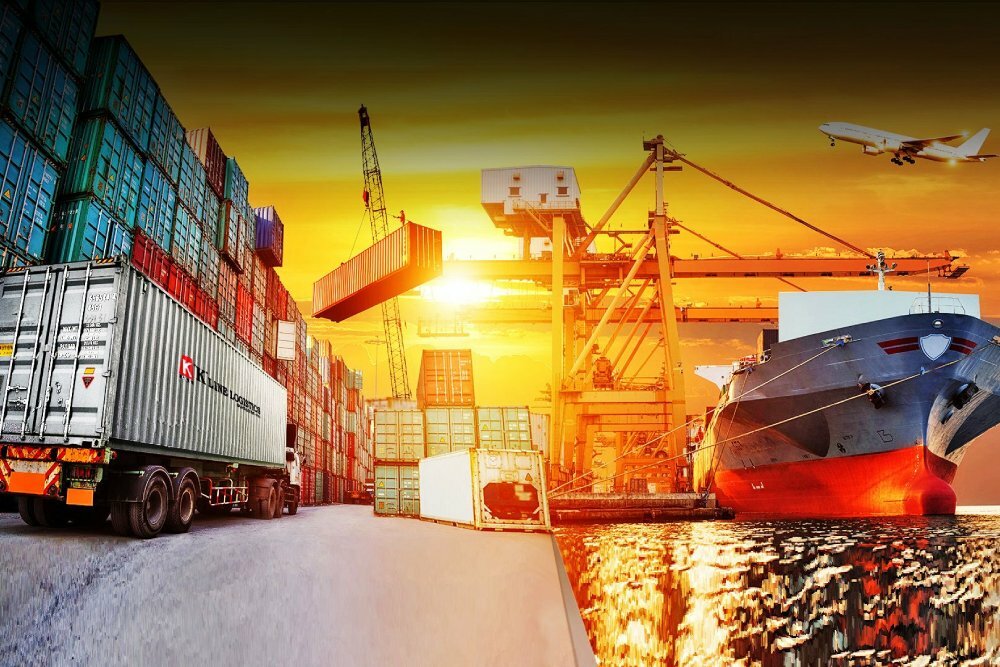 In the global trade and logistics industry, freight forwarding plays a vital role in facilitating the movement of goods across borders. It involves the coordination and management of various logistical processes to ensure the smooth transportation of cargo from origin to destination. This article provides an overview of freight forwarding, its definition, benefits, and the key stages involved in the process.
In the global trade and logistics industry, freight forwarding plays a vital role in facilitating the movement of goods across borders. It involves the coordination and management of various logistical processes to ensure the smooth transportation of cargo from origin to destination. This article provides an overview of freight forwarding, its definition, benefits, and the key stages involved in the process.
Definition of Freight Forwarding
Freight forwarding refers to the professional service of arranging and managing the transportation of goods on behalf of importers and exporters. Freight forwarders network act as intermediaries between shippers and carriers, handling a wide range of logistical activities. These activities include coordinating shipments, arranging transportation, managing documentation, and ensuring compliance with international trade regulations. Freight forwarders leverage their expertise and global network of partners to provide efficient and reliable transportation solutions to their clients.
Benefits of Freight Forwarding
Freight forwarding offers several benefits to businesses involved in international trade:
a. Expertise and Industry Knowledge:
Freight forwarders possess in-depth knowledge and expertise in global logistics. They stay updated with industry trends, regulations, and best practices. Their experience enables them to navigate complexities, optimize transportation routes, and provide valuable advice to clients, ensuring efficient and cost-effective shipping solutions.
b. Global Network and Partnerships:
Freight forwarders have established networks of carriers, agents, and logistics partners worldwide. These relationships enable them to negotiate competitive rates, access specialized services, and secure reliable transportation solutions even in challenging locations. Leveraging their network, freight forwarders can provide seamless door-to-door services, connecting clients to markets across the globe.
c. Documentation and Compliance:
Freight forwarders handle the complex documentation required for international shipments. They are well-versed in customs procedures, import/export regulations, and documentation requirements. By ensuring compliance with these regulations, freight forwarders help clients avoid delays, penalties, and other compliance-related issues.
d. Risk Management:
Freight forwarding involves inherent risks such as cargo loss, damage, theft, and delays. Freight forwarders actively manage these risks by providing cargo insurance options, implementing robust tracking systems, and offering contingency plans. They act as a single point of contact for issue resolution, providing peace of mind to clients throughout the transportation process.
e. Time and Cost Efficiency:
Freight forwarders optimize transportation routes, select appropriate carriers, and consolidate shipments whenever possible. By leveraging economies of scale and industry knowledge, they help clients save time and reduce shipping costs. Freight forwarders also handle administrative tasks, allowing businesses to focus on their core competencies.
Key Stages of Freight Forwarding
Freight forwarding involves several key stages, including:
a. Pre-Shipment Planning:
In this stage, the freight forwarder collaborates with the client to understand their specific requirements, including cargo type, volume, and delivery timeline. They provide guidance on packaging, labeling, and documentation requirements. Pre-shipment planning also involves conducting risk assessments, identifying potential challenges, and developing appropriate transportation strategies.
b. Carrier Selection and Booking:
Freight forwarders select the most suitable carriers based on factors such as cost, transit time, and the nature of the cargo. They negotiate freight rates, book transportation services, and ensure that all necessary documentation, such as bills of lading, is in order.
c. Documentation and Customs Compliance:
Freight forwarders handle the extensive documentation required for international shipments. This includes preparing commercial invoices, packing lists, certificates of origin, and any other customs-related documents. They ensure compliance with import/export regulations, complete customs declarations, and facilitate smooth customs clearance processes.
